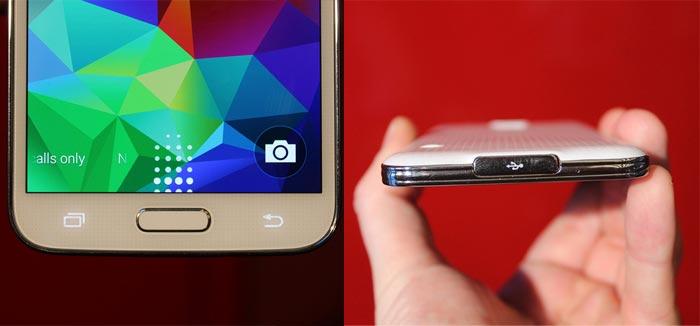
If you were to ask me two years ago what my main concern for new phones were, I wouldn't hesitate to tell you that the specs were inevitably what my eyes scanned for when looking up new phones. In fact, you probably don't even have to go back as far as two years ago; even this time last year it seemed that specs were still my main focus. But as the year continued on, I found myself more interested in what features each phone offered compared to one another to help determine what phones interested me the most. I think I realize at this point that when it comes to smartphones, specs and software have learned to play pretty well together, even on the lower end of the spectrum.
I think this really dawned on me when I was watching the announcement for the Samsung Galaxy S5. The specs were a little different, but other than the processor the specs between the Galaxy S4 and the Galaxy S5 remained largely the same. They both have 2GB of RAM, both have 16-megapixel cameras, both have 16 and 32GB variants with microSD card support (although the Galaxy S4 also carried a 64GB model, which I'm going to assume didn't sell well if the same won't be offered in the Galaxy S5. Even the batteries don't have much of a difference with the Galaxy S4 featuring a 2600 mAh battery and the Galaxy S5 sporting a 2800 mAh battery. At this point, the differences between the models rely on physique and features.
I'll admit, when I first heard about the specs I kind of had my doubts. I've depended on specs for so long to tell me whether a phone would be any good or not that I really didn't care about how many features it had. The bottom line to me was that if a phone didn't have good specs, the features wouldn't work well anyway so it wasn't worth my time. But over time, specs and software optimization have stabilized the worries I had in the past, specifically regarding Android phones, and honestly aren't as concerning to me anymore. Of course specs still matter, to a degree, just not as much anymore. What I'm trying to say is, the Galaxy S5 didn't need to have an octacore processor to end up winning my approval. I mentioned that I liked the Galaxy S5, and for many of the reasons why it was all due to features and optimization rather than specs.
For starters, you have the fact that the phone is waterproof and dustproof. This was a feature that I think should have been debuted in the Galaxy S4 - I think I would have liked it better then. You also have to realize that even though the battery is only 200 mAh higher than the Galaxy S4, the Galaxy S5 has that new Ultra Power Saving Mode that lets your phone last for up to 24 extra hours with just 10% of battery life left. I don't know about you guys, but when I hit 10% of battery life my mind goes in to panic mode and I find that I am subconsciously on the prowl for a charger. Even if the user will be fairly limited in what they can do in Ultra Power Saving Mode, you at least know you can call or text somebody if the need arises. Also, without Ultra Power Saving Mode Samsung claims you have up to 11 hours of video playback time using LTE, so it's safe to say the phone can at least last through a normal day's worth of usage as well. Then you have the fingerprint sensor, the improved camera, etc. The features in the Galaxy S5 speak to me more than the specs do this time around.
I'm expecting to feel the same way regarding the HTC One as well. Judging from leaks, it would seem that the HTC M8 (or The All New HTC One - blech) looks strikingly similar to the current HTC One. I wouldn't be too surprised if it ended up having similar specs as well. I also wouldn't be too upset if it turns out having the right improvements and features added to it. Optimizing battery life, improving the overall strength of the device and camera improvements are really all that needs to be done at this point it seems. I know I'm not upset with the way my HTC One is running.
I feel like the spec race is coming to a serious low point right now as we wait for new materials (i.e. graphene) and technology to come out and really push the potential of smartphones forward. Until then, it's time to get gung ho on the features.